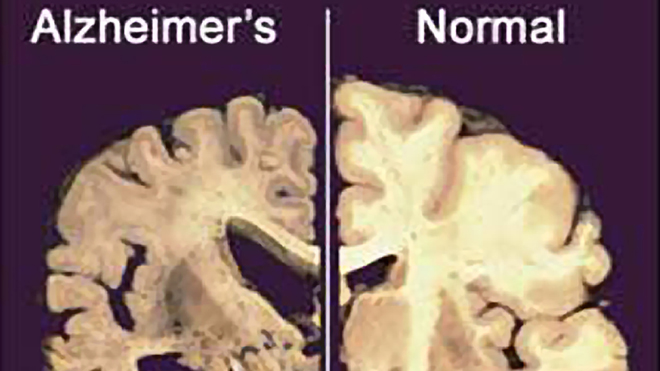(单词翻译:单击)
听力文本
A new study shows that being bilingual may delay dementia by five or more years. Researchers from the University of Edinburgh in Scotland discovered that people who spoke two languages did not show any signs of three types of dementia for more than four years longer than those who were monolingual. A co-author of the report, Dr. Thomas Bak, said: "Bilingualism can be seen as a successful brain training, contributing to cognitive reserve, which can help delay dementia." This means that speaking two languages keeps the brain in better health and helps to keep diseases like Alzheimer's at bay for longer than if someone spoke just one language.

Dr Bak's research found that bilingualism and the delaying of dementia had little to do with social status, gender, occupation or educational background. Bak's team evaluated the medical records of 648 people from India who had been diagnosed with dementia. Of these patients, 391 were bilingual or trilingual and many were illiterate. Dr Bak wrote: "The fact that bilingual advantage is not caused by any differences in education is confirmed by the fact that it was also found in illiterates, who have never attended any school." He suggested that learning a language later in life could keep the brain healthier. He said language learning was "socially more enjoyable, and it forces your brain to train permanently".
中文翻译
一项新的研究表明精通双语者会减缓5-6年患痴呆的时间。来自苏格兰爱丁堡大学的研究人员发现精通两种语言者在患有三种痴呆中比单一语言者患病的时间要推迟4年。这份报告的联合作家托马斯博士认为:“双语被视为是成功的脑力训练,助长认知储备,这将减缓患痴呆的时间。”这就意味着说两种语言让我们的大脑更健康,与单一语言者相比,将延缓患老年痴呆症的时间。
鲍克博士的研究发现双语者与减缓患痴呆的时间与社会地位、性别、职业或是教育背景没有任何关系。鲍克的团队对来自印度648名痴呆症患者的医疗报告进行了评估。在这些病患中,有391人会两种或三种语言,许多不识字。鲍克博士写到:“事实情况是,双语并不是由教育差距所引起的,这与是否受到过教育也没有关系。他认为在晚年学习语言会让大脑变得更加健康。他说学习语言让我们更容易被这个社会所接受,并被迫让你的大脑进行永久性训练。
译文属可可原创,仅供学习交流使用,未经许可请勿转载
重点讲解
1.cognitive reserve 认知储备
例句:This build-up of cognitive reserve appears to help bilingual people as they age.
随着双语者的年纪增长,建立起来的“认知储备”会逐渐显示出好处。
2.diagnosed with 确诊
例句:But what of those who have not been diagnosed with cancer?
但是那些没有被诊断患癌症的人怎么办呢?
3.social status 社会地位
例句:If you are always organising events, you are automatically the leader that has a high social status and a lot of energy.
如果你总是在组织活动和事件,那么无形中就是一个拥有较高社会地位和很有活力的领导者。
4.educational background 教育背景
例句:I would expect the standard rate of pay at your company for a person with my experiences and educational background.
我希望是贵公司对一个具有我这种经验和教育背景的人所付的标准薪资。
听力题目
1.Which university conducted this research?
a) Eden
b) Edinburgh
c) Headingly
d) Middlesbrough
2.How many types of dementia did not show up in bilinguals?
a) 6
b) 5
c) 4
d) 3
3.What did Dr Bak say bilingualism can be seen as?
a) a sign of not being English
b) luck
c) successful brain training
d) a good education policy
4.What can keep the brain in better health?
a) speaking two languages
b) vitamin D
c) jogging 2km a day
d) meditation
5.What can speaking two languages do to Alzheimer's disease?
a) change it
b) keep it at bay
c) cure it
d) confuse it
6.How many things mentioned did not affect the delaying of dementia?
a) 4
b) 3
c) 2
d) 1
7.How many medical records did Dr Bak look at?
a) 486
b) 684
c) 648
d) 846
8.How many of Dr Bak's case studies spoke two or more languages?
a) 391
b) 319
c) 193
d) 139
9.What had many of the illiterate people never done?
a) lived in a big city
b) got married
c) a medical check-up
d) attended school
10.What did Dr Bak say language learning forces your brain to do?
a) overheat
b) homework
c) train permanently
d) sleep more
听力答案
1.b
2.d
3.c
4.a
5.b
6.a
7.c
8.a
9.d
10.c


